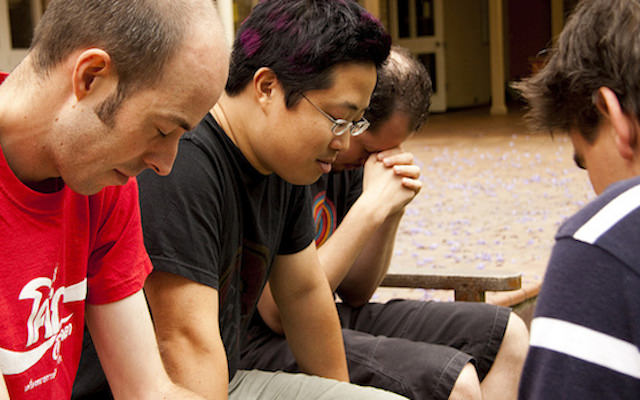When writing Christians living in Corinth, the apostle Paul emphasized the gospel as of “chief importance” and “what believers have taken their stand on.” They did not receive and believe the good news of Jesus and then move on to something else. We don’t “move on” from the gospel because there is nothing else of “chief importance” to move on to. There is nothing else on which we should stand. The gospel is of first importance.
But groups are really important too. Based on our research, we know that people in a group are more likely to be displaying attributes of a growing disciple than those not in a group. Those in a small group pray more fervently, give more generously, serve more sacrificially, and share the gospel more regularly than those not in a group. Groups matter. A lot.
So how are the gospel and groups connected? Should they be connected? Or is it possible to have the gospel as a doctrinal statement, as the message in weekend worship services, and then have groups that are seen as different and separate?
Sadly, in some churches the gospel is viewed as something for unbelievers to receive and groups are viewed as something for believers to participate in. But the gospel is what community must be built on. The gospel must impact our groups. If the gospel doesn’t impact groups, two things happen:
Community will be built on something less.
Community is only as strong as what it is built upon. If groups are built apart from the gospel, the community is shallow and won’t stand the test of time.
Community will not be transformational.
The Lord uses community to mature His people, but community that is transformational is grounded in the gospel of Jesus. Only Jesus has the power to change the human heart.
I recently spoke on the “gospel and groups” at The Gospel Project webcast, and you can watch the video below. You can watch all the videos from the event here: live.gospelproject.com. There are free discussion guides to go along with each session if you are watching with a group of people.





